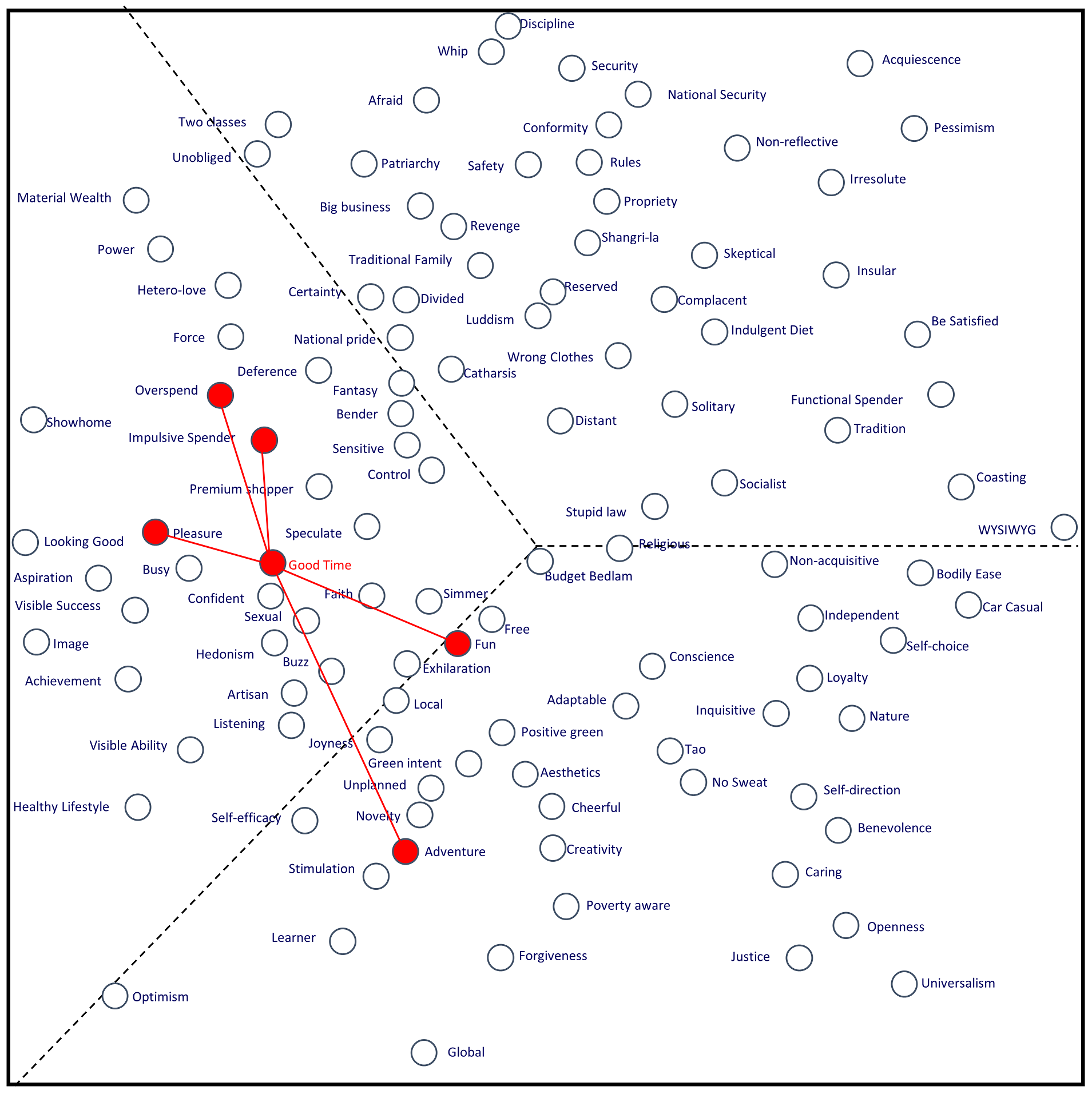

GOOD TIME
 |
Having a good time is important to me. I like to “spoil” myself.
Everybody likes a good time, yes? Well, let’s just say some more than others.
Good time espousers are a quarter more likely to be male than female and those aged under 35 are a quarter more likely than the population as a whole. This should be no surprise – it simply reinforces the age old archetype that young people tend to be more “hedonistic” than their elders, young men especially so. Young men just want to have fun and increasingly, as the pop song goes, so do “girls”.
Good time espousers tend to regard the experience of pleasure as a central pillar of the purpose of life. Pleasure, of course, covers a wide spectrum; from simple contentment through to hormone (or drug) driven states of rapture; and from purely physical through to purely cerebral satisfaction. All of these facets can be detected amongst Good time espousers.
They have a tendency not to consider the cost of their pursuit of a good time. They are more likely than most to be somewhat impulsive in their spending. They know they do it but they can’t stop themselves. If they were to win a large sum of money – for instance, on the Lottery – it’s almost certain that it wouldn’t last very long. These are not the kind of people to squirrel the money away for a rainy day. That would seem like a very dull thing to do and very much at odds with their need for excitement and adventure.
As an aside, women aged over 65 are more likely than most to be amongst those who most strongly reject the Good time attribute. There is undoubtedly a generational element at work and their chief objections are founded on behaving properly; being safe; obeying the rules; religion and being careful with money. In every sense, each of these objections is an obvious damper on any Good time espouser's ability to fulfill their needs.
From our data, we can discern that the Good time espouser’s broad values orientation has an impact on the character of the activities that bring the pleasure. For some it’s doing things that take you out of yourself – things that challenge you and need you to adapt to the unexpected. This would often involve both mind and body. For others, the focus is much more material and physical. Importantly, this would involve being seen having a good time, often with a crowd, to let others know that you’re worth it. For still others, having a good time is about being something of a rebel – knowing the rules and bending them; perhaps consciously adopting an unhealthy diet just because it feels good; and, importantly, not feeling any need to reflect on your behaviour.
The Good time attribute is about self-indulgence. Whether or not that leads to disruptive behaviours varies from person to person and situation to situation. One thing is for certain – Good time espousers will be found at the heart of night-life in town and city centres up and down the land.
Using Good timeDemographic Skews: 1) Over-indexed: Male, under 25. 2) Under-indexed: Female, 55+. Good time espousers also espouse other Attributes. The top five most highly correlated Attributes of Good time espousers are, in order of the strength of relationship: 1) Pleasure In total those who espouse Good time also over-index significantly on 30 other Attributes. |
|
If "Good time" (or the associated attributes) are important to you and you would like to delve more deeply, contact us at mail@cultdyn.co.uk
